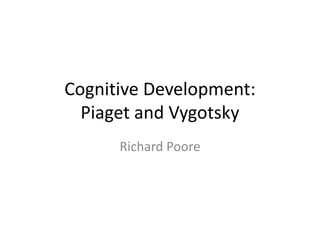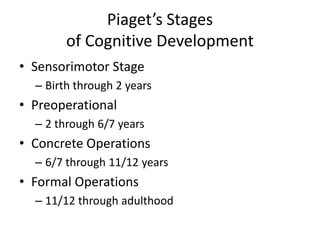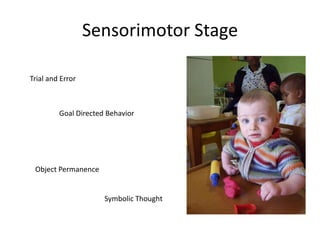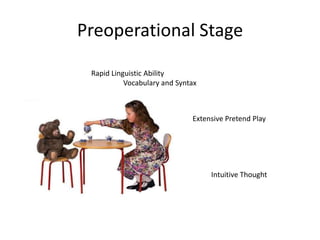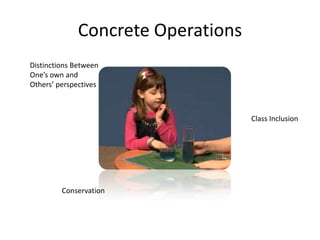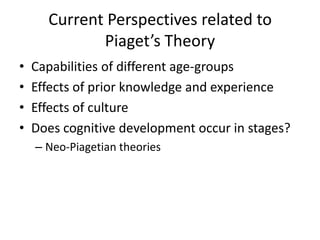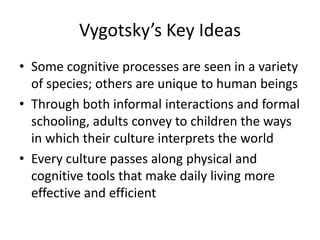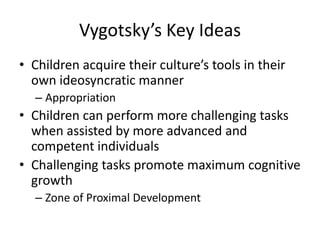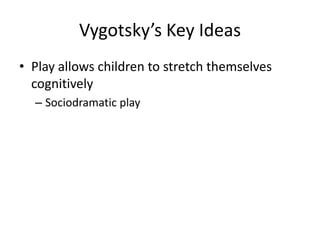1. Piaget and Vygotsky were two influential theorists of cognitive development. Piaget focused on how children actively construct knowledge through their experiences, while Vygotsky emphasized the role of social and cultural influences.
2. Both theorists saw development as occurring in stages and believed that social interaction was important, but they differed on key issues like the role of language and culture.
3. Their work remains influential today and provides guidance for applying developmental theories, such as challenging children appropriately and facilitating social learning experiences.
